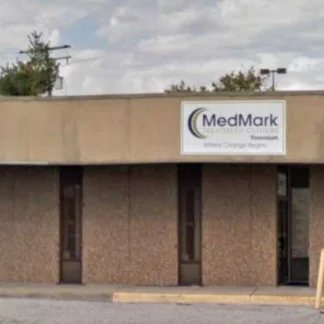Towson University Counseling Center
#N/A
MedMark Treatment Centers offers outpatient treatment for individuals with an opiate addiction. MedMark Treatment Centers is located in Lutherville Timonium, Maryland
MedMark Treatment Centers is committed to improve the quality of life of their patients. They are dedicated to offer support and encouragement through the recovery process while increasing accessibility to treatment. Their services are provided in a compassionate and caring environment
Patients have access to various other services at their methadone clinic as well, including case management services, lab testing, and discharge planning. If a patient is in need of services that MedMark Treatment Centers does not provides, such as housing or food assistance, the facility can provide a referral to other resources in the community that meet clients needs. Methadone maintenance treatment has a $176 admission fee, and $86.50 weekly. Buprenorphine maintenance treatment has a $350 admission fee. Both Admission fees include one week of treatment
Contact us for more information: (410) 561-9591

Connect with MedMark Treatment Centers by calling their admissions team directly.
(410) 561-9591 Website Get DirectionsThe Commission on Accreditation of Rehabilitation Facilities (CARF) is a non-profit organization that specifically accredits rehab organizations. Founded in 1966, CARF's, mission is to help service providers like rehab facilities maintain high standards of care.
CARF Accreditation: Yes Accreditation Number: 258200
The Substance Abuse and Mental Health Services Administration (SAMHSA) is a branch of the U.S. Department of Health and Human Services. Established in 1992 by congress, SAMHSA's mission is to reduce the impact of substance abuse and mental illness on American's communities.
SAMHSA Listed: Yes
State Licenses are permits issued by government agencies that allow rehab organizations to conduct business legally within a certain geographical area. Typically, the kind of program a rehab facility offers, along with its physical location, determines which licenses are required to operate legally.
State License: Maryland
Group therapy is any therapeutic work that happens in a group (not one-on-one). There are a number of different group therapy modalities, including support groups, experiential therapy, psycho-education, and more. Group therapy involves treatment as well as processing interaction between group members.
In individual therapy, a patient meets one-on-one with a trained psychologist or counselor. Therapy is a pivotal part of effective substance abuse treatment, as it often covers root causes of addiction, including challenges faced by the patient in their social, family, and work/school life.
In individual therapy, a patient meets one-on-one with a trained psychologist or counselor. Therapy is a pivotal part of effective substance abuse treatment, as it often covers root causes of addiction, including challenges faced by the patient in their social, family, and work/school life.
Loyola College Alcohol and Drug Support Services offers outpatient services for ...
Mosaic Community Services provides mental health and substance abuse assessments...
Huber and Associates Counseling is a private rehab located in Baltimore, Marylan...